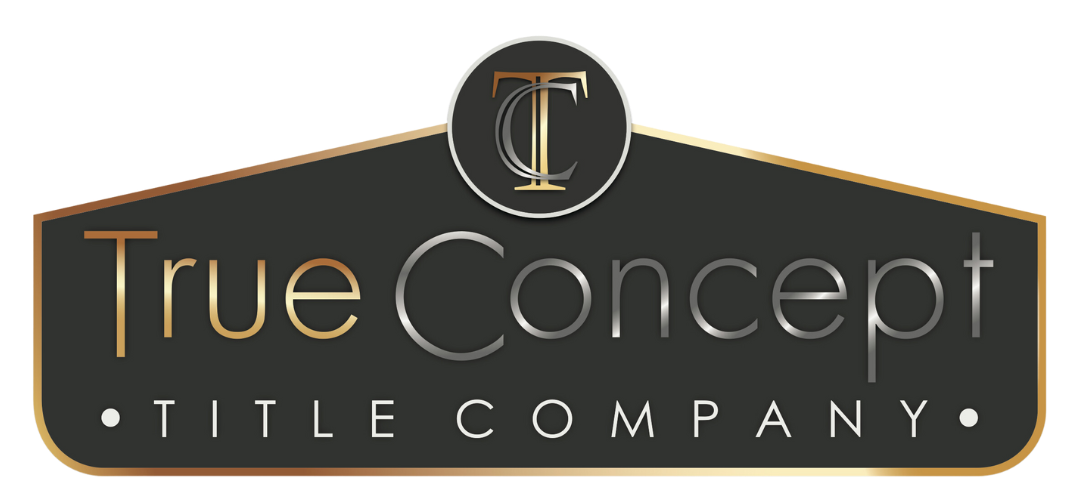Forfeiture Act & Title Insurance | True Concept Title
Title Insurance and the Forfeiture Act: What you need to know
Buying property is one of the most significant investments you will ever make. It is not just about securing a place to live or a piece of land to build on; it is about protecting your financial future and plans. Yet, many buyers focus so heavily on the physical aspects of a home, like location, renovations, or square footage, that they forget about hidden complications that are within the paperwork.
Title insurance exists to protect you from risks you cannot see, but that could cost you thousands of dollars if neglected. These
risks often include undiscovered liens, conflicting ownership claims, easements, recording errors, or even fraudulent activity buried in a property’s history. Without protection, you may find yourself dealing with expensive legal battles or limits on your ownership rights long after closing.
What is the Forfeiture Act?
While most title issues fall into categories such as liens or unrecorded claims, some are far more complicated. The Forfeiture Act is a set of laws that allows the government to seize private property under specific circumstances, most often when it is connected to a crime. For example, if a property was purchased with the proceeds of illegal activity, or if it was used to facilitate a crime, it could be subject to forfeiture to the government.
This legal process can be initiated by either federal or state authorities. When it occurs, it can create a serious and lasting legal defect on the property's title.
Types of Forfeiture: Understanding the Process and Its Impact
The potential title risk caused by the Forfeiture Act is caused from the nature of the legal process itself. Not all forfeitures are handled the same way, and the specific route a governmental agency takes dramatically impacts the title company’s ability to guarantee a clear transfer of ownership. Understanding the main types of forfeiture is crucial for recognizing why a title review must be so meticulous. The main types are:
- Criminal: This type is part of a criminal prosecution and requires the defendant to be convicted of a crime. The forfeiture action is against the person, and the government must prove the property was used in or derived from the crime.
- Civil judicial: This process is against the property itself. This is a court action that does not require a criminal conviction of the owner.
- Administrative: The government agency seizes and forfeits property without judicial involvement. This is generally reserved for personal property and only if it is uncontested.
Why Forfeiture Creates a Title Problem
When a property has been forfeited and then sold by the government, it can be a red flag for future buyers. A forfeiture in the chain of title can be an "extra-hazardous risk”. This is because there can be issues with the forfeiture process itself, such as:
- Lack of Proper Notice: The original owners or lienholders may not have been properly notified of the forfeiture proceedings.
- Procedural Errors: Mistakes in the legal process can invalidate the government's claim to the property.
- Unresolved Claims: Unwary buyers may not realize that certain innocent parties, such as a spouse or a lender with a mortgage, could have a claim to the property.
These hidden defects can surface years later, creating a legal nightmare for the new owner. They can lead to a challenge of the property's ownership, which is exactly what title insurance is designed to protect against.Years after a purchase, defects can emerge, creating a legal dilemma for the new homeowner. These issues can result in challenges to the property's ownership, which is precisely the kind of risk that title insurance is intended to mitigate.
The Role of Title Insurance in Forfeiture Cases
Title insurance is your best defense against the unique and complex risks presented by a forfeiture in a property's history. When you buy a property that has been through a forfeiture, a thorough title search and a strong owner's title insurance policy are non-negotiable.
Here's how title insurance addresses forfeiture-related risks:
- Title Search: The initial step involves an in-depth title search by an experienced title company to identify any history of forfeiture.
- Specialized Underwriting Review: Standard policies typically do not cover forfeiture cases. Instead, these require special underwriting approval from the title insurance company. This includes a meticulous examination of the forfeiture proceedings to confirm all legal requirements were met.
- Comprehensive Coverage: If approved, your title insurance policy provides protection against financial losses and legal expenses that may arise from a forfeiture claim. This ensures you are not left to address potential prior claims on the property's title independently.
Title insurance offers essential protection against the complex and specific risks associated with properties that have undergone forfeiture. For such properties, a comprehensive title search and a robust owner's title insurance policy are absolutely critical.
Securing Your Investment with True Concept Title
Navigating a real estate transaction can be complicated, and adding a forfeiture to the mix requires expert guidance. At True Concept Title, we do more than just issue policies. Our team takes the time to explain the intricacies of complex cases, such as those involving forfeiture, and walk you through your options.
Our process includes:
- Thorough Title Searches: We review deeds, liens, easements, and legal filings, paying special attention to potential red flags like forfeiture.
- Clear Explanations: We translate complex legal jargon into plain language, so you understand exactly what you are buying and what you are protected from.
- Custom Recommendations: We guide you on the necessary steps, including the need for specialized underwriting, to ensure your investment is fully secured.
- Ongoing Support: We stand by you even after closing if issues arise, providing the peace of mind you deserve.
The goal is simple: to make sure you understand what you are buying and how to protect it.
Protecting More Than Just Property
A house or a piece of land is more than just real estate; it represents your future, your family, and your financial security. Title insurance ensures that your investment is truly yours, free from hidden legal risks that could undermine your ownership. When it comes to something as complicated as a forfeiture, title insurance provides the ultimate protection.
Don't leave your rights unprotected. Contact True Concept Title today to secure your property, your future, and your peace of mind.










